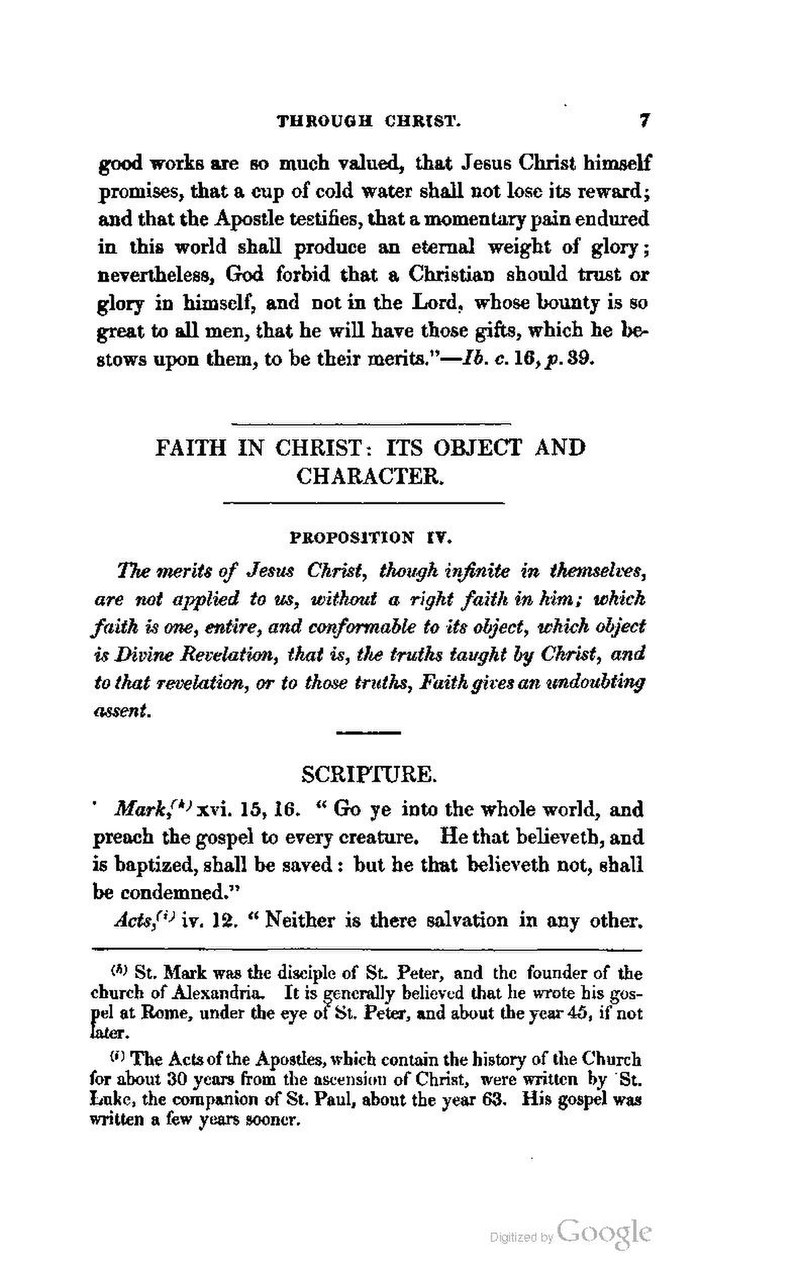good works are so much valued, that Jesus Christ himself promises, that a cup of cold water shall not lose its reward; and that the Apostle testifies, that a momentary pain endured in this world shall produce an eternal weight of glory; nevertheless, God forbid that a Christian should trust or glory in himself, and not in the Lord, whose bounty is so great to all men, that he will have those gifts, which he bestows upon them, to be their merits."—Ib. c. 16, p. 39.
FAITH IN CHRIST: ITS OBJECT AND CHARACTER.
PROPOSITION IV.
The merits of Jesus Christ, though infinite in themselves, are not applied to us, without a right faith in him; which faith is one, entire, and conformable to its object, which object is Divine Revelation, that is, the truths taught by Christ, and to that revelation, or to those truths, Faith gives an undoubting assent.
SCRIPTURE.
Mark,[1] xvi. 15, 16. “Go ye into the whole world, and preach the gospel to every creature. He that believeth, and is baptized, shall be saved: but he that believeth not, shall be condemned.”
Acts,[2] iv. 12. “ Neither is there salvation in any other.
- ↑ St. Mark was the disciple of St. Peter, and the founder of the church of Alexandria. It is generally believed that he wrote his gospel at Rome, under the eye of St. Peter, and about the year 45, if not later.
- ↑ The Acts of the Apostles, which contain the history of the Church for about 30 years from the ascension of Christ, were written by St. Luke, the companion of St. Paul, about the year 63. His gospel was written a few years sooner.
